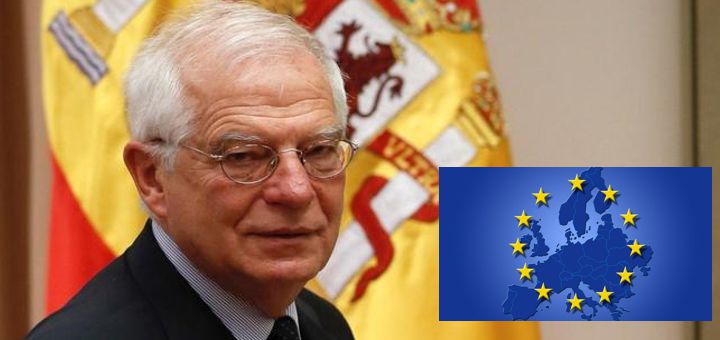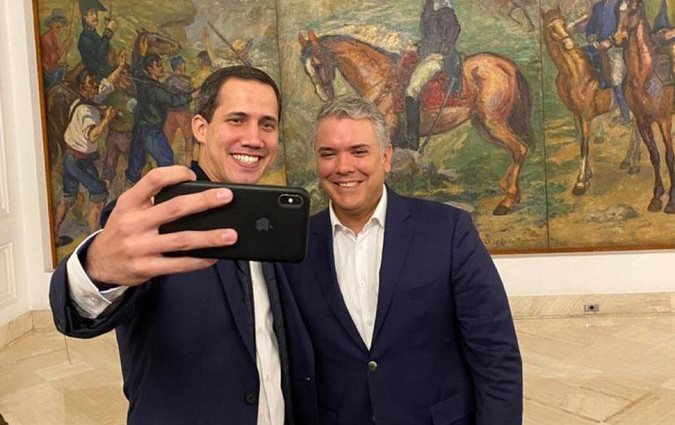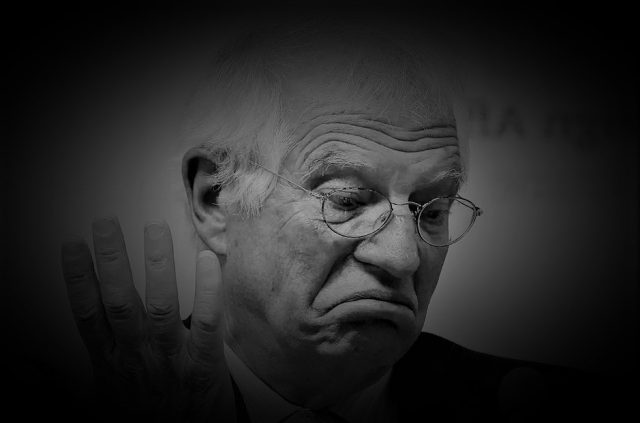The high representative of the European Union for Foreign Affairs, Josep Borrell, continues to disregard Venezuelan institutions. In an interview with the EFE agency and various Latin American media, he tried to disassociate himself from the boycott against Caracas. In it, he pointed out that it was the Donald Trump administration that sabotaged the dialogue process carried out in Norway. In his opinion, it was all due to the «lack of flexibility» of the former US president in the Venezuelan case.
Borrell stressed that the dialogue in Oslo did not come to fruition «because at that time, there was a lack of flexibility, particularly on the part of the (North) American administration». Even today, he considers that this situation has not changed and therefore he does not see a new negotiation, in the near future, between the Government of Nicolás Maduro and the most extremist sector of the opposition headed by Juan Guaidó. That, although the latter is not the one that currently has the most support and leadership within that Venezuelan political sector.
The EU representative hinted that the Venezuelan opposition does not have freedom of opinion. To start a new dialogue – he specified – they want to have «more clarity about the position of the Joe Biden government» in the United States.
In this sense, he affirmed that there are no signs that the negotiations between the two parties will be opened «on a fixed date». “The opposition is adapting to the new situation and everyone is also waiting to see what the attitude of the new (North) American administration will be. «That will undoubtedly be decisive”, said Borrell for the prospects in the next few months.
He also added that, for now, Norway does not consider that there are conditions to relaunch another negotiation process. «We will have to wait for everyone to relocate», he pointed out.

Borrell admits that he does not ‘collaborate’
In addition, Borrell also admitted that he has not convened the International Contact Group for Venezuela either. This ‘alliance’ is made up of several EU member states and a set of Latin American governments related to Washingtonn.
“We cannot be calling them every week. We must wait, have more clarity and better knowledge of what the positions of the different actors are. They include the (North) American administration”, he said.
Similarly, Borrell reiterated that for the EU the solution to the political situation in Venezuela involves negotiation. He even insisted that to be successful it is necessary to » have a will to find agreements» and also a will to «yield» from all the parties involved.
«So far, unfortunately, all attempts at negotiation have failed», emphasized the EU representative in the interview.

On Guaidó: «We cannot recognize him»
Meanwhile, Borrell reiterated the decision of the 27 states to no longer recognize Guaidó as «interim president». However, he ruled out that it is a concession to facilitate the opening of negotiations, as he – reluctantly – clarified that it is because of a legal situation.
“This is not a concession. This is a consideration of the Member States of the European Union based on the legal analysis of the situation created after the elections”, he admitted. However, his statement is far from the old position on the supposed «legitimacy» of Guaidó and – rather – gives recognition to the new Venezuelan Legislative Power.
Precisely, Borrell recalled that the EU does not recognize the National Assembly elected on December 6 in Venezuela. These elections are part of the Venezuelan constitutional mandate and to which the EU was invited to attend as an observer. Unfortunately, they did not want to participate arguing that «they were not celebrated as they should». Contradictorily, Borrell recognizes that the old National Assembly chaired by Guaidó has already finished its constitutional period.
“We consider Juan Guaidó as the leader of the Venezuelan opposition, because the Venezuelan opposition has wanted it that way. (…) But, we cannot recognize it as something else that would hinder the legal approach that the Member States consider”, he assured. However, he did not clarify which «Venezuelan opposition» he was referring to: the extremist or the democratic? Because – in reality – a good sector of the Venezuelan opposition does not want – nor does it recognize – Guaidó as their «leader».




